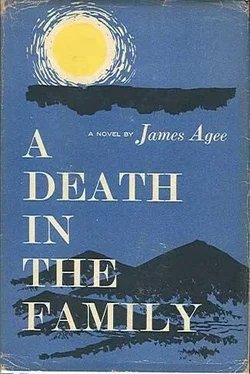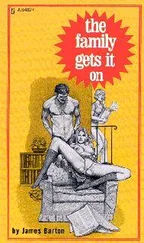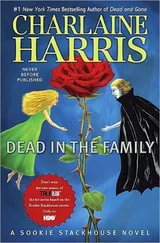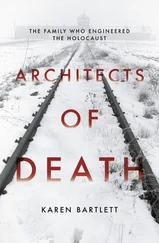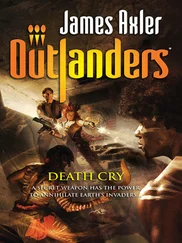"Instantly killed."
She nodded.
"Then it was that, that put him to sleep."
"Hyess."
"Not God."
Catherine looked at him, bewildered.
When breakfast was over he wandered listlessly into the sitting room and looked all around, but he did not see any place where he would like to sit down. He felt deeply idle and empty and at the same time gravely exhilarated, as if this were the morning of his birthday, except that this day seemed even more particularly his own day. There was nothing in the way it looked which was not ordinary, but it was filled with a noiseless and invisible kind of energy. He could see his mother's face while she told them about it and hear her voice, over and over, and silently, over and over, while he looked around the sitting room and through the window into the street, words repeated themselves, He's dead. He died last night while I was asleep and now it was already morning. He has already been dead since way last night and I didn't even know until I woke up. He has been dead all night while I was asleep and now it is morning and I am awake but he is still dead and he will stay right on being dead all afternoon and all night and all tomorrow while I am asleep again and wake up again and go to sleep again and he can't come back home again ever any more but I will see him once more before he is taken away. Dead now. He died last night while I was asleep and now it is already morning.
A boy went by with his books in a strap.
Two girls went by with their satchels.
He went to the hat rack and took his satchel and his hat and started back down the hall to the kitchen to get his lunch; then he remembered his new cap. But it was upstairs. It would be in Mama's and Daddy's room, he could remember when she took it off his head. He did not want to go in for it where she was lying down and now he realized, too, that he did not want to wear it. He would like to tell her good-bye before he went to school, but he did not want to go in and see her lying down and looking like that. He kept on towards the kitchen. He would tell Aunt Hannah good-bye instead.
She was at the sink washing dishes and Catherine sat on a kitchen chair watching her. He looked all around but he could not see any lunch. I guess she doesn't know about lunch, he reflected. She did not seem to realize that he was there so, after a moment, he said, "Good-bye."
"What-is-it?" she said and turned her lowered head, peering. "Why, Rufus!" she exclaimed, in such a tone that he wondered what he had done. "You're not going to school," she said, and now he realized that she was not mad at him.
"I can stay out of school?"
"Of course you can. You must. Today and tomorrow as well and-for a sufficient time. A few days. Now put up your things, and stay right in this house, child."
He looked at her and said to himself: but then they can't see me; but he knew there was no use begging her; already she was busy with the dishes again.
He went back along the hall towards the hat rack. In the first moment he had been only surprised and exhilarated not to have to go to school, and something of this sense of privilege remained, but almost immediately he was also disappointed. He could now see vividly how they would all look up when he came into the schoolroom and how the teacher would say something nice about his father and about him, and he knew that on this day everybody would treat him well, and even look up to him, for something had happened to him today which had not happened to any other boy in school, any other boy in town. They might even give him part of their lunches.
He felt even more profoundly empty and idle than before.
He laid down his satchel on the seat of the hat rack, but he kept his hat on. She'll spank me, he thought. Even worse, he could foresee her particular, crackling kind of anger. I won't let her find out, he told himself. Taking great care to be silent, he let himself out the front door.
The air was cool and gray and here and there along the street, shapeless and watery sunlight strayed and vanished. Now that he was in this outdoor air he felt even more listless and powerful; he was alone, and the silent, invisible energy. was everywhere. He stood on the porch and supposed that everyone he saw passing knew of an event so famous. A man was walking quickly up the street and as Rufus watched him, and waited for the man to meet his eyes, he felt a great quiet lifting within him of pride and of shyness, and he felt his face break into a smile, and then an uncontrollable grin, which he knew he must try to make sober again; but the man walked past without looking at him, and so did the next man who walked past in the other direction. Two schoolboys passed whose faces he knew, so he knew that they must know his, but they did not even seem to see him. Arthur and Alvin Tripp came down their front steps and along the far sidewalk and now he was sure, and came down his own front steps and halfway out to the sidewalk, but then he stopped, for now, although both of them looked across into his eyes, and he into theirs, they did not cross the street to him or even say hello, but kept on their way, still looking into his eyes with a kind of shy curiosity, even when their heads were turned almost backwards on their necks, and he turned his own head slowly, watching them go by, but when he saw that they were not going to speak he took care not to speak either.
What's the matter with them, he wondered, and still watched them; and even now, far down the street, Arthur kept turning his head, and for several steps Alvin walked backwards.
What are they mad about?
Now they no longer looked around, and now he watched them vanish under the hill.
Maybe they don't know, he thought. Maybe the others don't know, either.
He came out to the sidewalk.
Maybe everybody knew. Or maybe he knew something of great importance which nobody else knew. The alternatives were not at all distinct in his mind; he was puzzled, but no less proud and expectant than before. My daddy's dead, he said to himself slowly, and then, shyly, he said it aloud: "My daddy's dead." Nobody in sight seemed to have heard; he had said it to nobody in particular. "My daddy's dead," he said again, chiefly for his own benefit. It sounded powerful, solid, and entirely creditable, and he knew that if need be he would tell people. He watched a large, slow man come towards him and waited for the man to look at him and acknowledge the fact first, but when the man was just ahead of him, and still did not appear even to have seen him, he told him, "My daddy's dead," but the man did not seem to hear him, he just swung on by. He took care to tell the next man sooner and the man's face looked almost as if he were dodging a blow but he went on by, looking back a few steps later with a worried face; and after a few steps more he turned and came slowly back.
"What was that you said, sonny?" he asked; he was frowning slightly.
"My daddy's dead," Rufus said, expectantly.
"You mean that sure enough?" the man asked.
"He died last night when I was asleep and now he can't come home ever any more."
The man looked at him as if something hurt him.
"Where do you live, sonny?"
"Right here"; he showed with his eyes.
"Do your folks know you out here wandern round?"
He felt his stomach go empty. He looked frankly into his eyes and nodded quickly.
The man just looked at him and Rufus realized: He doesn't believe me. How do they always know?
"You better just go on back in the house, son," he said. "They won't like you being out here on the street." He kept looking at him, hard.
Rufus looked into his eyes with reproach and apprehension, and turned in at his walk. The man still stood there. Rufus went on slowly up his steps, and looked around. The man was on his way again but at the moment Rufus looked around, he did too, and now he stopped again.
Читать дальше
